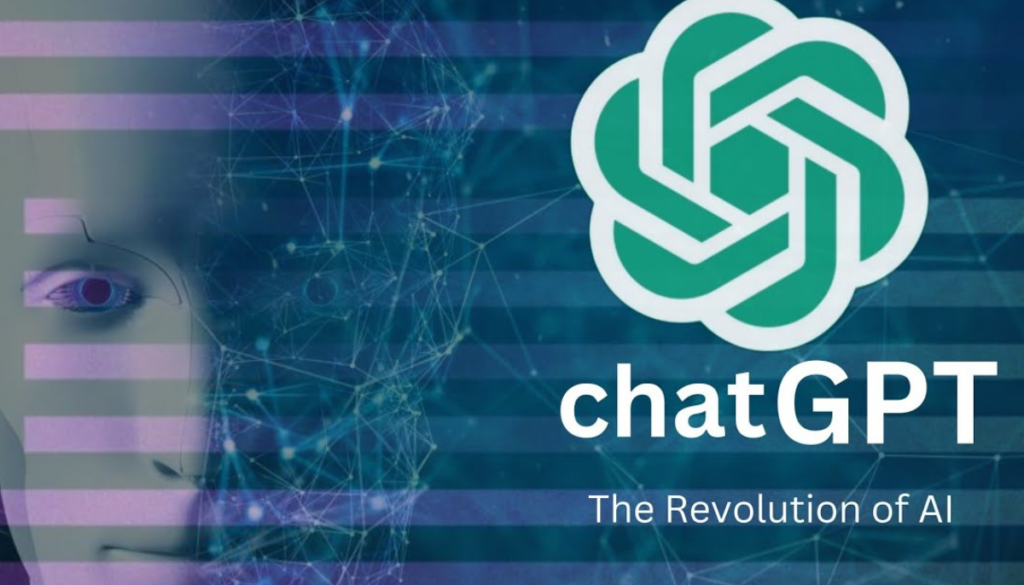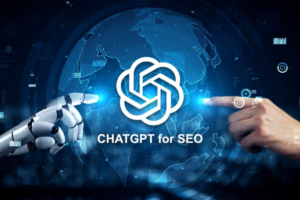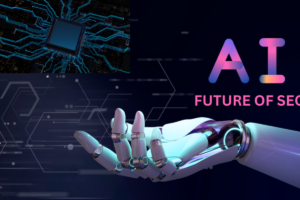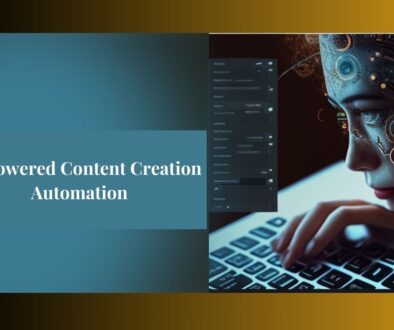The Future of SEO: A World Where ChatGPT Replaces Search Engines
In recent years, the rise of AI-driven conversational agents like ChatGPT has sparked discussions about their potential to revolutionize various industries. One of the most profound impacts could be on search engines, the backbone of the internet as we know it. As ChatGPT and similar AI tools become more sophisticated, there’s growing speculation that they could eventually replace traditional search engines altogether. If this happens, the world of Search Engine Optimization (SEO) will undergo a seismic shift. This blog explores the future of SEO in a world where ChatGPT and similar AI technologies render traditional search engines obsolete.
Table of Contents
-
Introduction
- The Evolution of Search Engines
- The Rise of AI-Driven Conversational Agents
- The Implications for SEO
-
Understanding the Current SEO Landscape
- SEO in the Age of Search Engines
- Key Components of Traditional SEO
- The Role of Algorithms and User Behavior
-
How ChatGPT Could Disrupt Search Engines
- The Capabilities of AI Conversational Agents
- A Shift from Search Queries to Conversations
- The Decline of Traditional Search Engines
-
The Future of SEO in a ChatGPT-Dominated World
- The Changing Nature of Keywords
- Content Optimization for AI Understanding
- The Importance of Context and Intent
- Voice and Conversational SEO
-
Adapting to a New SEO Reality
- Rethinking Content Strategy
- Leveraging AI Tools for SEO
- Embracing Long-Form and Interactive Content
-
Opportunities and Challenges for Businesses
- Navigating the New SEO Ecosystem
- The Role of Data and Analytics
- Balancing Human Creativity with AI Optimization
-
Conclusion
- The Uncertain Future of SEO
- Preparing for an AI-Driven World
- Final Thoughts
1. Introduction
The Evolution of Search Engines
Since their inception in the 1990s, search engines have transformed the way we access and interact with information online. From the early days of AltaVista and Yahoo! to the dominance of Google, search engines have evolved into complex systems that can quickly retrieve relevant information from the vast expanse of the internet. This evolution has been driven by advances in algorithms, machine learning, and user data analysis, making search engines more efficient and effective at delivering accurate results.
However, the core functionality of search engines has remained relatively unchanged: users input keywords, and the search engine returns a list of links to web pages that match those keywords. This process has shaped the SEO industry, which focuses on optimizing web content to rank higher in search engine results pages (SERPs).
The Rise of AI-Driven Conversational Agents
In recent years, AI-driven conversational agents like ChatGPT have emerged as powerful tools for natural language processing and understanding. Unlike traditional search engines, these AI systems can engage in dynamic conversations with users, providing more personalized and contextually relevant information. ChatGPT, for example, can generate human-like responses to a wide range of queries, from answering factual questions to offering creative suggestions.
As AI technologies continue to advance, there’s growing speculation that they could eventually replace traditional search engines as the primary means of accessing information online. Instead of typing keywords into a search bar and sifting through links, users could simply ask an AI like ChatGPT for the information they need, and receive a direct, conversational response.
The Implications for SEO
The potential replacement of search engines by AI-driven conversational agents would have profound implications for the SEO industry. If users no longer rely on search engines to find information, the traditional SEO strategies that businesses have relied on for years could become obsolete. Keywords, backlinks, meta tags, and other SEO staples may no longer play the same role in driving traffic to websites.
Instead, businesses will need to adapt to a new SEO landscape, where the focus shifts from optimizing content for search engines to optimizing it for AI understanding and user engagement. This blog explores what that future might look like, and how businesses can prepare for the changes ahead.

2. Understanding the Current SEO Landscape
SEO in the Age of Search Engines
SEO has long been an essential component of digital marketing, helping businesses attract organic traffic from search engines. The goal of SEO is to improve a website’s visibility in search engine results pages (SERPs) by optimizing various elements of the site, including content, structure, and user experience.
Over the years, SEO has evolved alongside search engine algorithms, which have become increasingly sophisticated in understanding user intent and delivering relevant results. Google’s algorithms, in particular, have driven much of this evolution, with updates like Panda, Penguin, and Hummingbird reshaping the SEO landscape.
Key Components of Traditional SEO
Traditional SEO strategies focus on several key components, each of which plays a role in improving a website’s ranking in SERPs:
-
Keywords: Keywords are the foundation of SEO. By identifying and targeting specific keywords that users are likely to search for, businesses can optimize their content to rank higher in search results.
-
On-Page SEO: This involves optimizing individual web pages to improve their relevance and user experience. Key elements include meta tags, headings, images, and internal links.
-
Off-Page SEO: Off-page SEO focuses on building a website’s authority through external factors, such as backlinks from other reputable sites. The more high-quality backlinks a site has, the more likely it is to rank well.
-
Technical SEO: Technical SEO involves optimizing the technical aspects of a website, such as its load speed, mobile-friendliness, and security. These factors are critical for ensuring that search engines can crawl and index the site effectively.
-
Content Quality: High-quality, relevant content is essential for SEO. Search engines prioritize content that provides value to users, which means that businesses need to focus on creating content that is informative, engaging, and well-written.
The Role of Algorithms and User Behavior
Search engines rely on complex algorithms to determine which web pages should appear in response to a user’s query. These algorithms take into account hundreds of ranking factors, from the relevance of the content to the user’s location and search history. User behavior also plays a significant role in SEO, as search engines use data on clicks, bounce rates, and dwell time to gauge the quality of a website’s content.
As AI-driven conversational agents like ChatGPT become more prevalent, the role of these algorithms may change. Instead of ranking web pages based on keywords and backlinks, AI systems could prioritize content that is more conversational, contextually relevant, and personalized to the user’s needs.
3. How ChatGPT Could Disrupt Search Engines
The Capabilities of AI Conversational Agents
AI conversational agents like ChatGPT are designed to understand and generate human-like text based on the context of a conversation. These systems use advanced machine learning models, such as transformers, to process large amounts of data and generate responses that are coherent, contextually appropriate, and often indistinguishable from human-written text.
One of the key advantages of AI conversational agents is their ability to engage in natural, dynamic conversations with users. Unlike traditional search engines, which rely on static keyword queries, AI agents can handle follow-up questions, clarify user intent, and provide more nuanced and personalized responses.
A Shift from Search Queries to Conversations
If AI conversational agents like ChatGPT were to replace traditional search engines, the way users interact with online information would change dramatically. Instead of typing short, keyword-based queries into a search bar, users would engage in conversations with the AI, asking questions and receiving answers in real-time.
This shift from search queries to conversations would fundamentally alter the role of SEO. Businesses would need to focus on creating content that is optimized for AI understanding, rather than simply targeting specific keywords. The emphasis would be on context, intent, and the ability to provide comprehensive, relevant information in response to a wide range of user queries.
The Decline of Traditional Search Engines
The rise of AI conversational agents could lead to a decline in the use of traditional search engines. As users become more accustomed to interacting with AI systems like ChatGPT, they may begin to favor these tools over search engines, which can be less efficient and less personalized in delivering information.
If traditional search engines lose their dominance, the SEO industry will need to adapt quickly. The focus will shift from optimizing for search engine algorithms to optimizing for AI-driven conversations. This could mean rethinking everything from keyword strategies to content creation and user engagement.
4. The Future of SEO in a ChatGPT-Dominated World
The Changing Nature of Keywords
In a world where AI conversational agents replace traditional search engines, the role of keywords in SEO is likely to change significantly. While keywords have long been the foundation of SEO strategies, AI systems like ChatGPT prioritize context and intent over specific words or phrases. This means that businesses will need to focus less on targeting individual keywords and more on creating content that addresses the underlying questions and needs of their audience.
Instead of optimizing for specific search terms, content creators will need to think about the broader topics and themes that their audience is interested in. This might involve creating more in-depth, comprehensive content that covers a wide range of related questions and topics, rather than focusing narrowly on a single keyword.
Content Optimization for AI Understanding
To succeed in a ChatGPT-dominated world, businesses will need to optimize their content for AI understanding. This means creating content that is clear, concise, and easy for AI systems to process and interpret. Unlike traditional SEO, which often involves optimizing for search engine crawlers, the focus here will be on making content more accessible and understandable for AI models.












